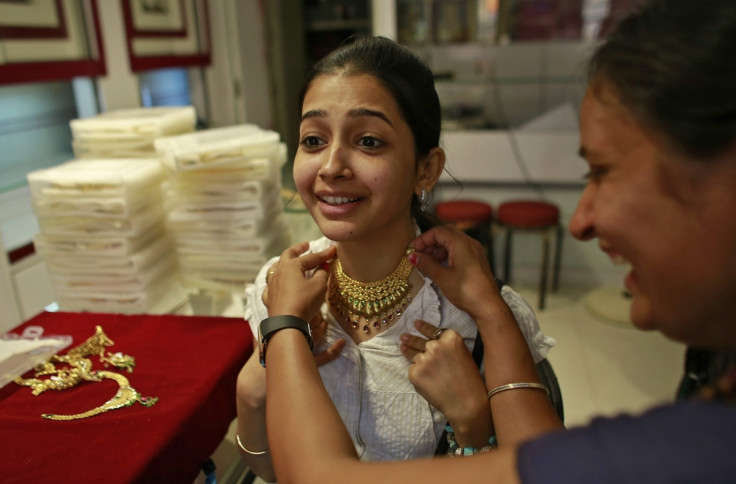India: Gold Premiums Drop to $100 on Easing Demand

Gold premiums in India, the world's second-largest bullion consumer, fell this week as demand eased on hopes of a further relaxation of import restrictions and lower prices.
Premiums dropped to $100 (£59, €72) an ounce over the global benchmark, from last week's $120-$130 an ounce, dealers told Reuters.
By comparison, premiums in China, the leading consumer, hovered at about $3 an ounce.
Premiums in Hong Kong hovered between 80 cents and $1.20 an ounce, while those in Singapore and Japan remained unchanged from last week's levels.
The 36-day-long general elections in India end on 12 May and results are due on 16 May. Traders and consumers expect the incoming government to slash record high import duties on gold and ease export rules, moves that will lower gold prices.
"Jewellery demand is holding up to an extent but people have been putting off gold purchases on expectations that a new government will cut the duty and ease the rules," said Bachhraj Bamalwa, director with All India Gems and Jewellery Trade Federation, which represents over 300,000 jewellers.
"If the rules are eased, premiums would drop sharply and consumers would rather wait for that," Bamalwa told the news agency.
India celebrated the Akshaya Tritiya festival on 2 May, when gold buying turns auspicious. That and the current wedding demand boosted premiums last week
RBI Eases Curbs
In March, the Reserve Bank of India (RBI) allowed five private sector banks to import gold, a move that marked a major step towards easing India's tough bullion import restrictions.
The central bank permitted HDFC Bank, Axis Bank, Kotak Mahindra Bank, IndusInd Bank and Yes Bank to import the yellow metal.
Government Restrictions
Three upward revisions to the import duties on gold in 2013, to a record 10%, and restrictions tying purchases to exports, discouraged gold buying in Asia's third-largest economy last year.
While official imports in 2013 reached 750 tonnes, an additional 200 tonnes was believed to have been smuggled to India, according to estimates from the World Gold Council.
New Delhi imposed the so-called 80/20 rule in July 2013, making it mandatory to export a fifth of all gold imports.
According to that rule, only six banks and three state-run trading agencies that had facilitated export of jewellery or gold over the past three years were allowed to import. The six banks were mainly state-run lenders.
© Copyright IBTimes 2025. All rights reserved.






















